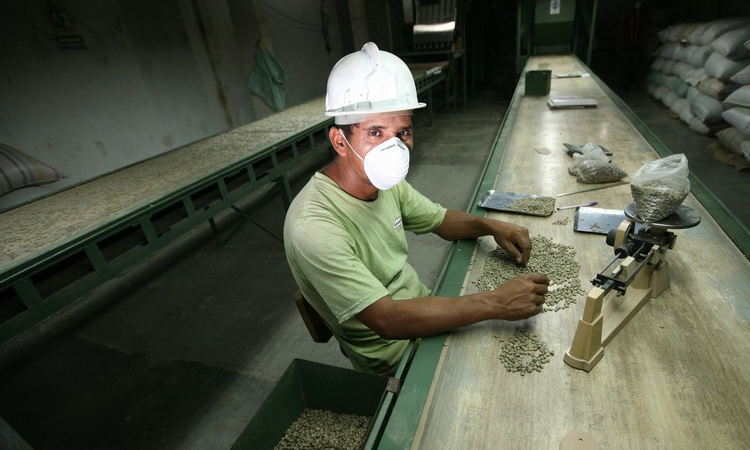Two Fairtrade co-ops, ATAISI and El Sunza, have provided food supplies to their members, more than 500 people between the two organisations, using funds from the Fairtrade Premium, obtained from sales of Fairtrade coffee and sugar.
‘We are very grateful to God and Fairtrade for giving the associates this food and for the sales of the Fairtrade sugar. We thank all the people who are in this because we don’t have to go out on the streets and contaminate ourselves with coronavirus,’ said Nelson Alonzo Raimundo, in charge of the San Isidro area of ATAISI, upon receiving his food supply.
Ernesto Mestizo, manager of ATAISI, said that, ‘as a co-op, we had to take new options, we had to emphasize and point out that we, thank God, have a little fund from the Fairtrade Premium from the sale of sugarcane in 2019 and we had to take those funds to be able to give food supplies to associates and retirees.’
Meanwhile, the Los Pinos Co-op Association for Agricultural Production (ACOPALP) has provided financial support to its members, who have not received wages as a result of the emergency. In keeping with the principle of solidarity, financial support was provided to partners who did not receive the $300 subsidy from the government. Furthermore, the Los Pinos co-op has a program through which it provides retirement pensions to twenty-five members over sixty years of age. These producers have worked all their lives in the co-op and their pensions are paid with the Fairtrade Premium funds. This initiative, launched three years ago, is now making it possible to protect one of the most vulnerable groups to the coronavirus: older adults.
‘If it had not been for that feasibility that Fairtrade International gave for the use of the Premium we would have a very complicated situation at Los Pinos’ said Rigoberto Rojas, President of the Salvadoran Coordinating Association of Small Organized Producers (CESPPO) and member of Los Pinos.
The co-ops have also reinforced measures to prevent the spread of the coronavirus. ATAISI has supported the establishment of a ‘cordon sanitaire’, which consists of a handwashing station and a barrier to sanitise passers-by and vehicles entering communities where the co-op operates. Meanwhile, El Sunza has donated sanitary equipment, masks, and alcohol gel to the medical dispensary established by the co-op.
All Fairtrade certified co-ops in El Salvador had already finished the coffee and sugar harvests, and some are working on preparing coffee shipments to Europe and the United States with reduced staff. The main challenge they now face is obtaining credits to continue operations once the quarantine is lifted.
Rigoberto Rojas and member of Los Pinos co-op explained that the quarantine began at the time that the co-ops were applying for loans with state banks, a process that generally takes several months to complete. Loans are a necessary to supply liquidity into the organisations but these efforts have been delayed due to the closure of the state banking entities.
Rojas highlighted the importance of belonging to Fairtrade in this time of the COVID-19 pandemic since it has allowed the Salvadoran co-ops to help their members and to strengthen prevention measures in their communities.
‘For us, belonging to Fairtrade International and Fair Trade gives us hope to help our organisations and to see how we recover once we restart our activities,’ said Rojas. ‘I want to ask our buyers abroad and consumers to continue buying coffee from our Fairtrade organisations and to help us with any contribution they can make to continue to give sustainability to our organisations on the environmental, social, and economic issues,’ he added.
Find out more about how Fairtrade is responding to COVID-19
Authored by CLAC
Image: Samuel Rodriguez, in charge of quality at the Los Pinos coffee mill, takes a coffee sample for testing.
